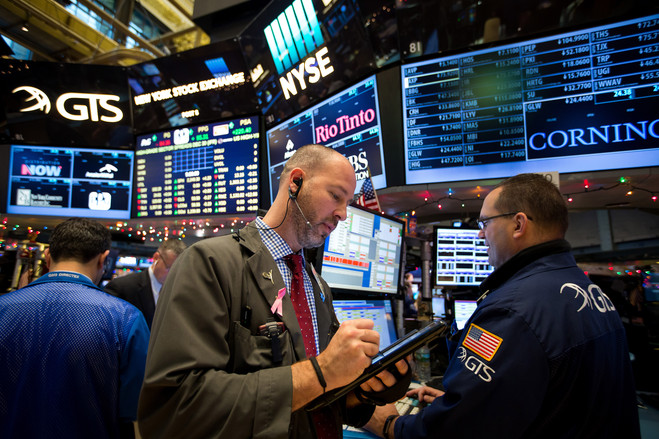
Executives at LoanCore Capital LLC were plotting an initial public offering in 2015 for a portfolio company that manages commercial real-estate credit. Just before the IPO was to launch, the stock market fell sharply. LoanCore pulled the plug.
It hardly mattered. There was plenty of money elsewhere. Last March, LoanCore raised $1 billion from two sovereign-wealth funds. The company expects to continue to raise money from these investors, Canada Pension Plan Investment Board and Singapore’s GIC, according to people familiar with the matter.
LoanCore is emblematic of a new generation of companies that have shunned public markets. With interest rates hovering near record lows, big investment funds seeking higher returns are showering private companies with cash. Companies also are leaving the stock market in near-record numbers through mergers and acquisitions.
The U.S. is becoming “de-equitized,” putting some of the best investing prospects out of the reach of ordinary Americans. The stock market once offered a way for average investors to buy into the fastest-growing companies, helping spread the nation’s wealth. Since the financial crisis, the equity market has become bifurcated, with a private option available to select investors and a public one that is more of a last resort for companies.

The number of U.S.-listed companies has declined by more than 3,000 since peaking at 9,113 in 1997, according to the University of Chicago’s Center for Research in Security Prices. As of June, there were 5,734 such public companies, little more than in 1982, when the economy was less than half its current size. Meanwhile, the average public company’s valuation has ballooned.
In the technology industry, the private fundraising market now dwarfs its public counterpart. There were just 26 U.S.-listed technology IPOs last year, raising $4.3 billion, according to Dealogic. Meanwhile, private U.S. tech companies tapped the late-stage funding market 809 times last year, raising $19 billion, Dow Jones VentureSource’s data show.
Private funding markets have taken on attributes of public equity, such as an ability to hand employees shares they can trade. Airbnb Inc.’s recent $850 million funding round, which valued the home-rental company at $30 billion, enabled employees to sell $200 million of stock. Investors, particularly in late-stage funding rounds, now often have a better view of a private company’s financials than they used to, including through quarterly conference calls.
“There’s no great advantage of being public,” says Jerry Davis, a professor at the University of Michigan’s Ross School of Business and author of “The Vanishing American Corporation.” “The dangers of being a public company are really evident.”
Among them, Mr. Davis and others say: having an investor base that clamors for short-term stock gains and being forced to disclose information that could be useful to competitors.

Company departures from public markets have left fund managers with fewer investment options. Their eagerness for more IPOs is evident in the extreme volatility of the few technology companies that made their debuts last year, investors say. Shares of Twilio Inc., Nutanix Inc. and other tech companies that made debuts last year surged well beyond their private-market values, and while most remain above those levels, many pulled back sharply from their post-IPO highs.
Brad Slingerlend, who invests almost exclusively in public companies as a portfolio manager at the Janus Global Technology Fund, often meets with entrepreneurs and seeks to convince them public markets could be their…

